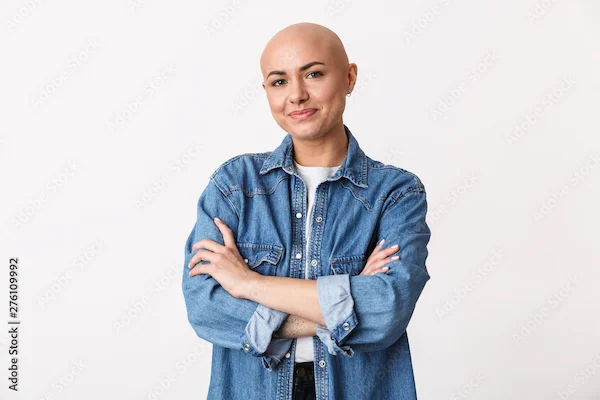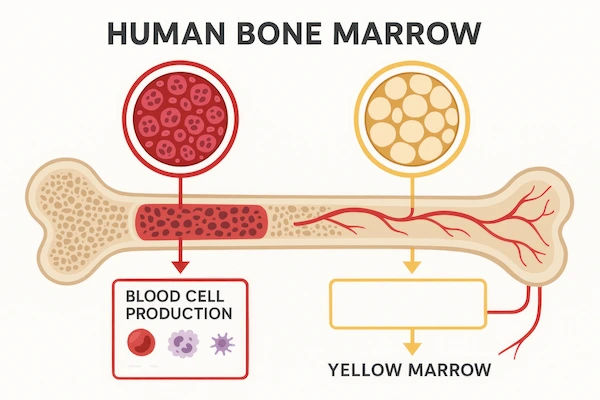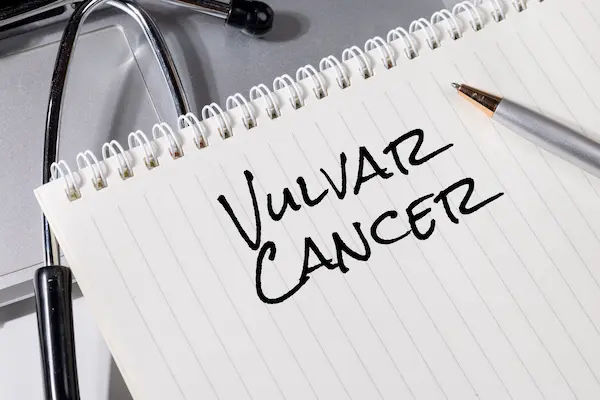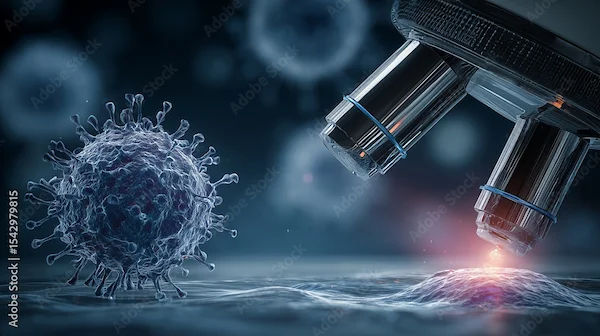Signs of Cancer: Understanding It's Not Always a Terminal Disease
Discover the signs of cancer and learn why a diagnosis is not always terminal. Explore early warning signs, modern treatments, and how early detection can save lives.

.webp?tr=q-80,f-webp,w-350,dpr-2,c-at_max 700w)
Introduction
Hearing the word "cancer" can instantly evoke fear and anxiety, often linked to the assumption of a terminal outcome. This association, while understandable, is outdated and doesn't reflect the tremendous progress made in oncology. The critical truth is that cancer is not a single disease but a collection of related diseases, and a diagnosis is far from an automatic death sentence. Many cancers are now highly treatable, and some are even curable, especially when detected in their early stages. This article aims to demystify the signs of cancer, shift the narrative from fear to empowerment, and help you understand the importance of early detection. Knowledge is your first and most powerful line of defense, transforming uncertainty into proactive health management.
What is Cancer, Really? Beyond the Fear
At its core, cancer is a disease of the genes. It begins when genetic changes interfere with the orderly process of cell division. Normally, cells grow, divide, and die in a controlled way. Cancer occurs when this process breaks down: old or damaged cells survive instead of dying, and new cells form when the body doesn't need them. These extra cells can divide without stopping and may form growths called tumors. Understanding this basic mechanism is the first step in removing the veil of mystery and terror that often surrounds the disease.
A crucial distinction lies in the type of tumor. Benign tumors are not cancerous. They can often be removed, and in most cases, they do not come back. Their cells do not invade nearby tissues or spread to other parts of the body. Malignant tumors, however, are cancerous. Their cells can invade nearby tissues and can metastasize (travel through the bloodstream or lymphatic system) to form new tumors in other parts of the body. This fundamental difference between benign and malignant growths is why finding a lump does not automatically mean a terminal prognosis.
Consult an Oncologist for the best advice
Early Warning Signs: Listening to Your Body's Signals
Your body often sends signals when something is wrong. Recognising the potential early signs of cancer can lead to an earlier diagnosis, which is when treatment is most likely to be successful. The American Cancer Society uses the acronym CAUTION to help remember these key warning signs:
- Change in bowel or bladder habits: Persistent diarrhoea, constipation, or a change in the size of the stool can indicate colorectal cancer. Painful urination or blood in the urine could be a sign of bladder or prostate cancer.
- A sore that does not heal: A persistent sore in the mouth could be oral cancer, while a skin sore that doesn't heal might be a sign of skin cancer.
- Unusual bleeding or discharge: Coughing up blood could be related to lung cancer. Blood in the stool might be a sign of colon or rectal cancer. Unusual vaginal bleeding could indicate cervical or endometrial cancer.
- Thickening or lump in the breast or elsewhere: Many cancers can be felt through the skin, most commonly in the breast, testicle, lymph nodes, or soft tissues of the body.
- Indigestion or difficulty swallowing: While often caused by other conditions, persistent indigestion or trouble swallowing may signal cancer of the oesophagus, stomach, or throat.
- Obvious change in a wart or mole: Any change in color, size, shape, or border of a skin spot, or a new mole, should be evaluated for melanoma.
- Nagging cough or hoarseness: A cough that doesn't go away or hoarseness could be a symptom of lung or laryngeal cancer.
In addition to these, general symptoms like unexplained weight loss, persistent fatigue, fever, or night sweats can also be associated with cancer. It's vital to remember that these symptoms are more often caused by conditions other than cancer. However, if they persist for more than two weeks, it is essential to consult a doctor for further evaluation. If symptoms persist beyond two weeks, consult a doctor online with Apollo24|7 for further evaluation.
Why Early Detection is Your Greatest Ally
The stage at which cancer is diagnosed is one of the most important factors in determining the outcome. Early-stage cancers are typically small, localised, and haven't spread to lymph nodes or other sites. This containment makes them much easier to treat effectively, often with less aggressive therapies. For example, the 5-year relative survival rate for localised breast cancer is 99%, and for localised prostate cancer, it's nearly 100%.
The success stories are not just statistics; they represent millions of lives. Advancements in cancer screening tests like mammograms, pap smears, and colonoscopies have been instrumental in finding cancers early, sometimes even before symptoms develop. This proactive approach transforms the narrative of cancer from a terminal disease to a manageable, and often curable, health condition. The goal of modern oncology is to catch the disease in its most vulnerable state, dramatically improving the prognosis and quality of life for patients.
Modern Medicine's Arsenal: Treatment is Not One-Size-Fits-All
The image of cancer treatment being solely about harsh chemotherapy is another outdated notion. Today, the field of oncology offers a sophisticated and personalised arsenal:
- Surgery: Often the first-line treatment for solid, localised tumors, aiming to remove the entire cancerous growth.
- Radiation Therapy: Uses high-energy particles to damage cancer cells' DNA, destroying them while sparing as much healthy tissue as possible.
- Chemotherapy: Uses powerful drugs to kill fast-growing cells throughout the body. It's used to treat widespread cancer or shrink tumors before other treatments.
- Immunotherapy: A revolutionary approach that boosts the patient's own immune system to recognise and destroy cancer cells more effectively.
- Targeted Therapy: Uses drugs that specifically target the genes and proteins involved in cancer cell growth and survival.
- Hormone Therapy: Slows or stops the growth of cancers that use hormones to grow, such as breast and prostate cancer.
The treatment plan is highly individualised based on the type, stage, and genetics of the cancer, as well as the patient's overall health. The objective can be curative (to achieve remission), control (to manage a chronic cancer), or palliative (to relieve symptoms and improve quality of life, even if a cure isn't possible). This multi-faceted approach underscores that a diagnosis is not the end but the beginning of a targeted battle plan.
Survivorship: Living a Full Life After a Cancer Diagnosis
Perhaps the most powerful evidence that cancer is not a terminal disease is the vast and growing community of survivors. In the United States alone, there are over 18 million cancer survivors, a number projected to rise to 22 million by 2030. Cancer survivorship begins at diagnosis and includes everyone living with, through, and beyond cancer.
Life after treatment, often called the "new normal," may involve managing long-term side effects and attending follow-up appointments to monitor for recurrence. However, it is overwhelmingly a story of resilience and return to everyday life. Survivors go back to work, spend time with family, pursue hobbies, and live full, meaningful lives. Their stories are a testament to the progress in treatment and a beacon of hope for anyone newly diagnosed, proving that a cancer journey can have a positive, long-term outcome.
When to See a Doctor: Taking Proactive Steps
Knowing the signs is only half the battle; taking action is the other. You are the expert on your own body. If you notice any persistent, unexplained changes, do not ignore them out of fear. The most important step you can take is to schedule an appointment with your doctor. Be prepared to describe your symptoms clearly: when they started, how often they occur, and if anything makes them better or worse.
Early consultation can lead to peace of mind if the symptoms are benign or, if it is something more serious, to the earliest possible intervention. If your condition does not improve after trying basic methods, book a physical visit to a doctor with Apollo24|7. Proactive healthcare is the key to changing outcomes.
Conclusion
Understanding the signs of cancer is less about fostering fear and more about empowering yourself with knowledge. The landscape of cancer care has evolved dramatically, moving the disease from a universally feared terminal prognosis to an often manageable condition. The core message is one of hope and proactive action. By listening to your body, recognising potential warnings, and seeking timely medical advice, you take control of your health. Remember, the goal of modern medicine is not just to treat cancer but to help patients live longer, healthier lives during and after treatment. If you have concerns, the most powerful step you can take is to talk to a doctor. Your vigilance could make all the difference.
Consult an Oncologist for the best advice
Consult an Oncologist for the best advice

Dr. Sanchayan Mandal
Medical Oncologist
17 Years • MBBS, DrNB( MEDICAL ONCOLOGY), DNB (RADIOTHERAPY),ECMO. PDCR. ASCO
Kolkata
MCR SUPER SPECIALITY POLY CLINIC & PATHOLOGY, Kolkata

Dr. Rupam Manna
Radiation Specialist Oncologist
4 Years • MBBS MD(RADIO THERAPY)
Barasat
Diab-Eat-Ease, Barasat

Dr Gowshikk Rajkumar
Oncologist
10 Years • MBBS, DMRT, DNB in Radiation oncology
Bengaluru
Apollo Clinic, JP nagar, Bengaluru
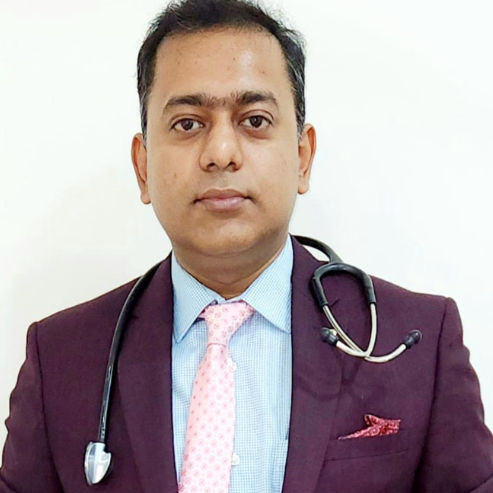
Dr.sanchayan Mandal
Medical Oncologist
17 Years • MBBS, DrNB( MEDICAL ONCOLOGY), DNB (RADIOTHERAPY),ECMO. PDCR. ASCO
Kolkata
Dr. Sanchayan Mandal Oncology Clinic, Kolkata
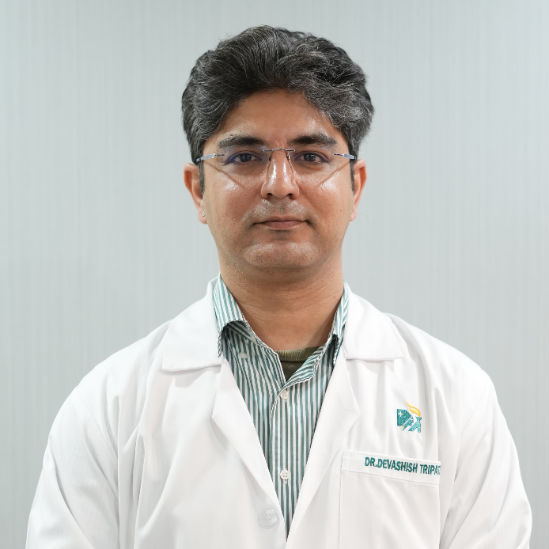
Dr Devashish Tripathi
Radiation Specialist Oncologist
20 Years • MBBS, PLAB, MRCP (UK)- General Medicine, FRCR (Oncology), Certificate of Completion of Training (CCT)- Clinical Oncology
Delhi
Apollo Hospitals Indraprastha, Delhi
Consult an Oncologist for the best advice

Dr. Sanchayan Mandal
Medical Oncologist
17 Years • MBBS, DrNB( MEDICAL ONCOLOGY), DNB (RADIOTHERAPY),ECMO. PDCR. ASCO
Kolkata
MCR SUPER SPECIALITY POLY CLINIC & PATHOLOGY, Kolkata

Dr. Rupam Manna
Radiation Specialist Oncologist
4 Years • MBBS MD(RADIO THERAPY)
Barasat
Diab-Eat-Ease, Barasat

Dr Gowshikk Rajkumar
Oncologist
10 Years • MBBS, DMRT, DNB in Radiation oncology
Bengaluru
Apollo Clinic, JP nagar, Bengaluru

Dr.sanchayan Mandal
Medical Oncologist
17 Years • MBBS, DrNB( MEDICAL ONCOLOGY), DNB (RADIOTHERAPY),ECMO. PDCR. ASCO
Kolkata
Dr. Sanchayan Mandal Oncology Clinic, Kolkata

Dr Devashish Tripathi
Radiation Specialist Oncologist
20 Years • MBBS, PLAB, MRCP (UK)- General Medicine, FRCR (Oncology), Certificate of Completion of Training (CCT)- Clinical Oncology
Delhi
Apollo Hospitals Indraprastha, Delhi
More articles from Cancer
Frequently Asked Questions
What are the most curable types of cancer?
Curability depends on the stage at diagnosis, but cancers with very high 5-year survival rates when detected early include thyroid cancer, testicular cancer, melanoma, prostate cancer, and breast cancer.
If a family member had cancer, does that mean I will get it?
Not necessarily. While a family history can increase your risk for certain types of cancer, most cancers are caused by a combination of genetic, lifestyle, and environmental factors. It does mean you should discuss your family history with a doctor to see if you need earlier or more frequent cancer screening.
Can lifestyle changes really reduce my cancer risk?
Absolutely. The World Health Organisation estimates that 30-50% of cancers can be prevented by avoiding key risk factors. This includes not smoking, maintaining a healthy weight, eating a diet rich in fruits and vegetables, limiting alcohol, being physically active, and protecting your skin from the sun.
Are all lumps a sign of cancer?
No, the vast majority of lumps are not cancerous. Common benign causes include cysts, lipomas (fatty tumors), and swollen lymph nodes from infection. However, any new, persistent, or growing lump should always be evaluated by a healthcare professional to rule out malignant tumors.
What does 'remission' mean? Is it the same as being cured?
Remission means the signs and symptoms of cancer are reduced or undetectable. Complete remission means no cancer can be found on tests. It is not always synonymous with 'cured,' as cancer can sometimes return. Doctors often use the term 'cured' after a person has remained in remission for many years with a very low chance of the cancer returning.
